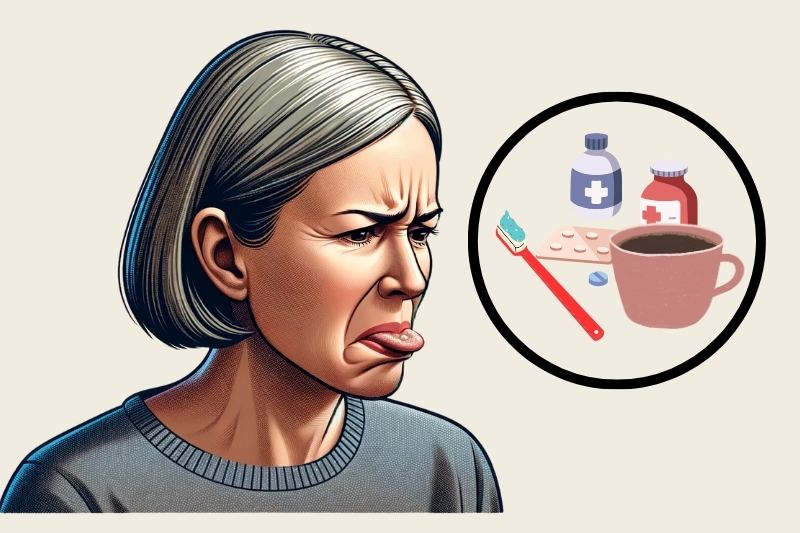Have you ever woken up with a bitter taste in your mouth? Or noticed a lingering bitterness that seems unrelated to what you’ve eaten?
This common phenomenon can sometimes be temporary but may also persist. This common phenomenon, often temporary but sometimes persistent, can be puzzling and even concerning. In this article, we delve into the various causes of this bitter taste, offering insights into when it’s a mere annoyance and when it might signal something more serious. Scroll down to read more.
1.Dietary Factors
A common cause of a bitter taste in the mouth is certain foods and drinks. Foods rich in alkaloids, like coffee, cocoa, and certain types of leafy greens, can leave a lingering bitterness. Additionally, artificial sweeteners and certain preservatives may also contribute to this sensation.
Join Agogo Newsletter
And get Updates for Better Health.
2.Dental Issues
Oral hygiene plays a central role in the tastes we experience. Gum diseases, dental infections, or lack of regular oral care can lead to bacterial buildup, resulting in a bitter or metallic taste. Regular dental checkups are crucial to rule out these issues.
3.Medications and Medical Treatments
Certain medications, especially those used to treat infections, high blood pressure, and allergies, can have side effects that include a bitter taste. Additionally, treatments like chemotherapy can alter taste perception, causing even familiar foods to taste bitter and unpleasant.
4.Digestive System Problems
Gastroesophageal reflux disease (GERD) can cause stomach acids to seep into the esophagus and mouth, leading to a bitter or sour taste. Similarly, other digestive issues can affect our taste sensations.
5.Certain Health Conditions
A bitter taste can sometimes be a symptom of broader health issues. Conditions like jaundice, certain metabolic disorders, and nutritional deficiencies can manifest as changes in taste. It’s important to consider these possibilities, especially if the bitter taste persists.
6.Hormonal Changes
Hormones affect various bodily functions, including taste. Pregnant women often report changes in taste, including increased bitterness, due to hormonal changes. Similarly, menopause can lead to changes in taste perception.
In summary, while a bitter taste in the mouth is often harmless and temporary, it can sometimes be a sign of certain health issues. Maintaining good oral hygiene, paying attention to diet, and being aware of medication side effects are essential steps in managing this symptom. However, if the bitter taste persists, it’s recommended to consult a doctor for a more thorough assessment.













